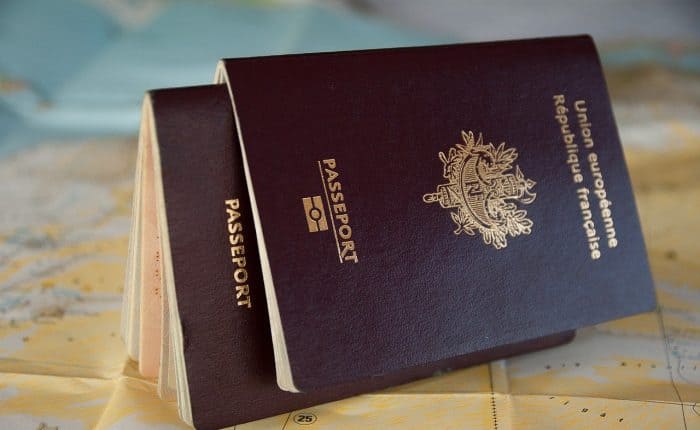There is a lot of excitement in store if you’re planning an adventure abroad. You’ll meet new people, have new experiences, and learn things that you never imagined. One experience you don’t want to have while you travel, however, is identify theft.
Luckily, you’re already here. Read on for 7 actionable ways to protect your identity during your travels.
1. Essential Plastic Only
You know the “less is more” mentality that you apply to packing your suitcase? Use the same culling techniques on your wallet before you leave home. Take what you need and leave the rest behind.
Fewer cards to keep track of will make things easier. You’ll know right away if you’ve misplaced a card. With less cards there will be fewer calls to make in the event that you are pick-pocketed.
If you can, leave your debit card behind. Some travelers opt to open a prepaid debit account and only fund it with cash as needed. This way your real card that connects to your bank account is secured. It’s best to deal in cash and essential plastic only. However, we can’t always bring a counterfeit money detector with us, so you should be super aware of your dealings with others.
In the event your prepaid debit card is stolen, you’ll only lose a limited amount of money. Just be sure that the prepaid card you pick is open for international use.
2. Public Networks and Computers: Use with Caution
It’s great to have public Wi-Fi in your hotel room, but it’s easy to hack into some networked systems. It is best if you check your bank balances and arrange transfers only on a secure network.
You should especially avoid using any public computers such as internet cafes or even libraries to do your banking. If you must use these types of public access points, never allow the computer to save your login or account information.
For added protection, delete your search history before you go on your way. Be sure you have logged out completely. Don’t hesitate to question the hotel or cafe you are in about their internet security before you surf the web.
3. Hold Your Mail at Home
Don’t forget that identity theft lurks at home while you are away. Put a stop on your mail or ask a trusted neighbor to pick it up every day. Crooks who see mail piling up are more likely to target you for identity theft.
They’re also more likely to try to break into a house that is unoccupied. Additionally, lock away any of your important documents inside your home, just in case there is a security issue while you’re away.
Hopefully, these precautions will ultimately be unnecessary. Either way, you’ll enjoy greater peace of mind if you take care to lock up your valuables and make your house look like it’s business as usual.
Experience the Insider community that takes your international lifestyle to the next level. Download your FREE guide
"18 Steps to Implementing Your Plan B" instantly!
4. Talk to Your Bank and Card Providers
Give your bank’s customer service line a call before you depart. Let them know where you will be and how long you’ll be there. This will help you avoid an ill-timed hold on your account.
It will also help your bank identify fraudulent activity right away. If your card is lost or stolen and used outside of the area you are in, your bank will contact you or hold your account.
Remember that you may not realize your account is compromised until the thief has had ample time to clean you out.
5. Credit Cards Offer More Security
If you can, use a credit card to pay for purchases while you travel. Credit card companies often have more security features and will provide faster service if something goes wrong. This is especially helpful with online purchases.
Your credit card company can reverse charges and pursue action against anyone who defrauds you. It’s also a good idea to ask about these features before you fly so you know what to expect.
6. Monitor Your Activity
If you can find a secure connection, keep tabs on your account activity while you’re traveling. If your banking site is secure, it should begin with “https” in the site name.
As you monitor your transactions, call your bank immediately if something looks suspicious. The sooner you alert them, the better.
7. Be Alert to Fraud
If something seems off about an interaction, follow your gut. Be especially wary of situations over the phone. A common scam is for criminals to pretend to be the hotel front desk and call requesting your credit card information.
If you are in doubt, visit the desk in person. It is far better to be inconvenienced than robbed.
With these seven actionable ways to protect your identity, you’ll be able to have a relaxed and enjoyable time abroad.
Like Our Articles?
Then make sure to check out our Bookstore... we have titles packed full of premium offshore intel. Instant Download - Print off for your private library before the government demands we take these down!







